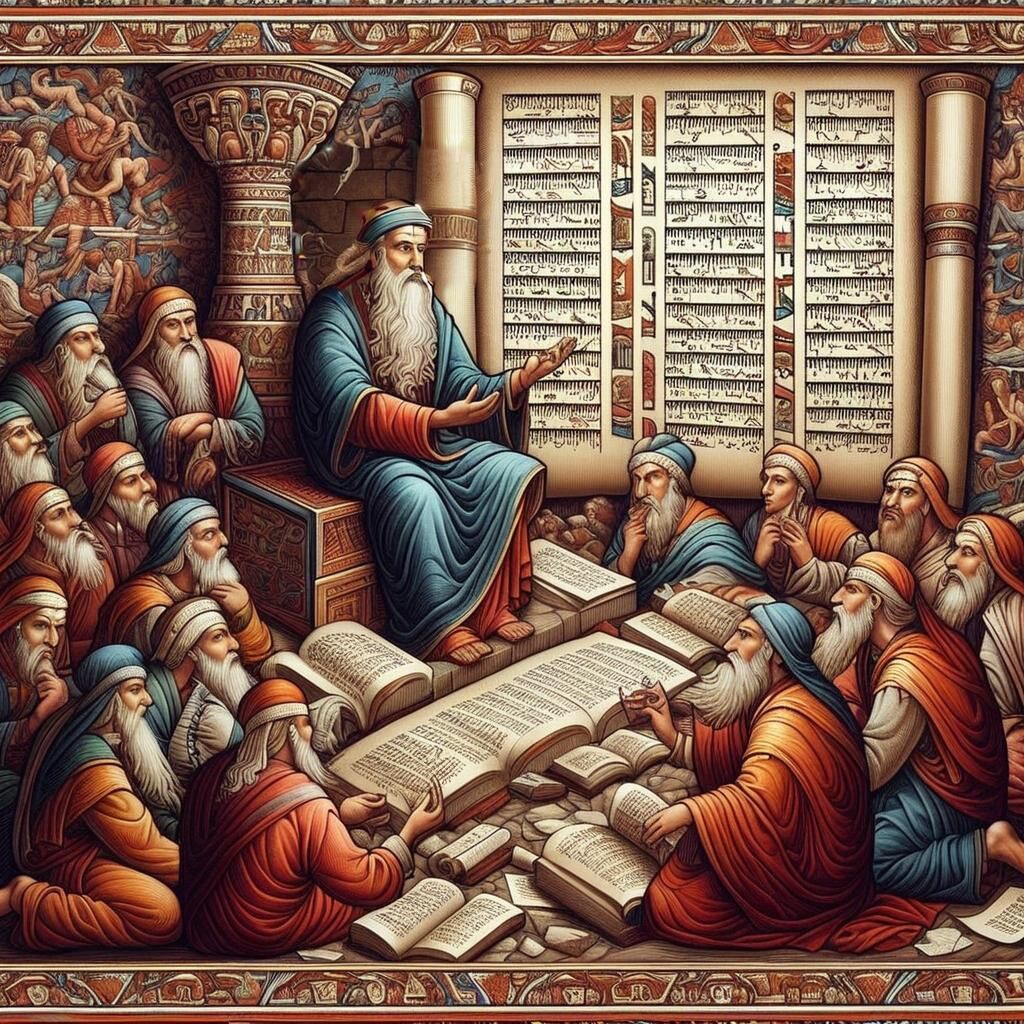Greetings, saints of the Most High! Welcome to another installment of the Messianic Torah Observer. Today, we delve into the intriguing topic of our Melchizedekian Priestly Pedigree, focusing on Jasher’s hidden chronicles.
In Part 3, we explored the theological implications of the Avram-Melchizedek encounter, discussing the dual offices of priesthood and kingship, the blessing conferred upon Avram, the significance of tithing, and the mysterious nature of Melchizedek. We also examined various religious perspectives on Melchizedek, including those from Catholicism, Islam, and Messianic Judaism.
Jewish legend and tradition often identify Shem, Noah’s righteous son, as Avram’s Melchizedek. However, there are several issues with this theory, including the lack of canonical biblical evidence and the improbability of Shem’s lifespan overlapping with Avram’s. Despite these concerns, the book of Jasher perpetuates this connection, presenting a narrative where Shem is indeed Avram’s Melchizedek.
Jasher’s account embellishes the biblical story, referring to Melchizedek as Adonizedek and describing a community meeting with Avram, bearing bread and wine. Interestingly, Jasher omits Melchizedek’s blessing of Yehovah, a curious detail given some ancient rabbinic opinions.
The narrative continues with Shem passing his prophecy school to Eber, his great-grandson, while the Melchizedekian priesthood is conferred upon Avram. This lineage, according to Jasher, includes notable figures like Adam, Enoch, and Noah, culminating in Avram.
However, the Jasher narrative raises questions about the authenticity and accuracy of these accounts. The Melchizedekian priesthood, as described in the Torah, operates outside biological heritage lines and temple sacrificial systems, foreshadowing the Spirit and Truth worship Yeshua spoke of.
Despite the conflicts between Jasher’s and the Torah’s accounts, we can glean significant insights into our Melchizedekian priestly pedigree. Concepts of righteousness, priestly conduct, obedience, and steadfast commitment to the faith form the foundation of our priestly calling. As students of Yahoshua’s Great School of Prophecy, we are in a season of training and preparation for our future roles in the Kingdom of Yehovah.
In conclusion, while I have my reservations about Jasher’s account, it offers valuable lessons about the godly elements that make up our Melchizedekian priestly pedigree. As we continue this series, we will explore these elements further, preparing us to serve as Melchizedekian kings and priests in the coming Kingdom of Yah.
May you be most blessed, fellow saints in training. Let us embrace our calling and prepare for the roles we are destined to fulfill.
The Ineffable Name Controversy — Breaking Traditions: The Controversy of God’s Name
The Ineffable Name Controversy: Breaking Traditions and Unveiling Truth Introduction: In the realm of faith, the Name of Yehovah holds profound significance. However, the tradition of not uttering or writing this sacred name has sparked controversy and debate. This...
The Royal Priesthood: Exploring the Historical, Spiritual, and Eschatological Roles of Melchizedek-Part 1
The Royal Priesthood: Exploring the Historical, Spiritual, and Eschatological Roles of Melchizedek - Part 1 Greetings, saints of the Most High! Welcome to another installment of the Messianic Torah Observer. I'm Rod Thomas, coming to you on a wintry Preparation Day in...
Exploring the Historical and Theological Aspects of Noahide Laws – Part 2
Exploring the Historical and Theological Aspects of Noahide Laws - Part 2 Greetings, saints of the Most High! Welcome to another installment of the Messianic Torah Observer. Today, we delve into the second part of our discussion on the Noahide Laws, a concept...
Trusting in the Divine Plan-The Significance of Avraham’s Covenant with Yehovah — Thoughts and Reflections on Torah Reading 10
Greetings, saints of the Most High! Welcome to another installment of the Messianic Torah Observer. I'm Rod Thomas, coming to you on a very dreary Preparation Day in the DFW. Thank you for taking the time out of your busy schedules to fellowship with me. As always, it...
Noahide Laws-A Historical and Theological Exploration Part 1
Greetings, saints of the Most High! Welcome to another installment of the Messianic Torah Observer. Today, we delve into the fascinating topic of the Noahide Laws, exploring their origins, development, and implications for both Jews and Gentiles. Introduction to...
From Noah to Nations: Unveiling the Prophetic Journey — Thoughts and Reflections on Torah Reading 8
In this Torah Reading Discussion, "From Noah to Nations-Unveiling the Prophetic Journey-Thoughts and Reflections on Torah Reading 8," we delve into the profound insights of Torah Reading 8. This study explores Genesis 9.18-10.32, Isaiah 49.1-13, and Revelation 5.1-14,...
From Flood to Faith: The Enduring Promise of the Noahic Covenant — Thoughts and Reflections on Torah Reading 7
The Noahic Covenant: Humanity's Path to Redemption Greetings, saints of the Most High. Welcome to another installment of the Messianic Torah Observer. I'm Rod Thomas, coming to you on a beautiful Shabbat in the DFW area. I hope this message finds you and your loved...
Why Aren’t We Keeping the Feast of Rosh Chodesh-Thoughts and Reflections on the Torah Reading for the 9th Rosh Chodesh
Greetings, Saints of the Most High! Welcome to another installment of the Messianic Torah Observer. I'm Rod Thomas, coming to you on a crisp fall afternoon in DFW. Thank you for taking the time to fellowship with me. I hope this post finds you and your loved ones well...
And God Remembered Noah — Thoughts & Reflections on Torah Reading 6 — Reboot
And God Remembered Noah This week's Torah reading, "And God Remembered Noah," is from Genesis 8:1-14, the 6th Parashah in our 3-Year Torah Reading Cycle. The Power of the Ruach In Genesis 8:1, Elohim remembered Noah and sent a wind (ruach) over...
Pleasing God-Yah in Perilous Times-Lessons From the Life of Noah-Thoughts & Reflections on Torah Reading 5 (Reboot)
Torah Reading this week is found in Genesis 6:9-7:24. It is a very familiar passage of Torah that bears a good many themes, concepts and spiritual applications. But for us today, I want us to focus on just one central theme, if you will. And that theme has to do...

